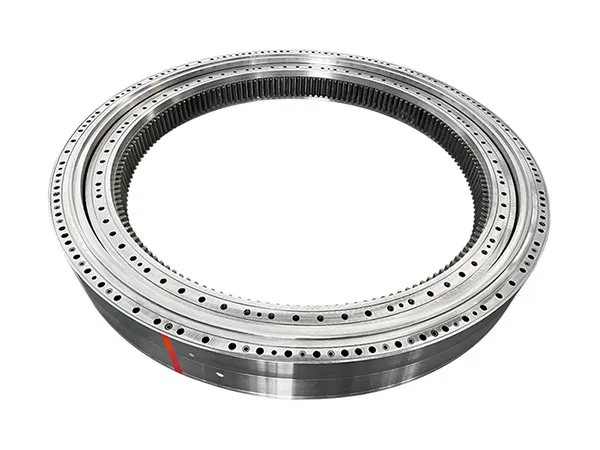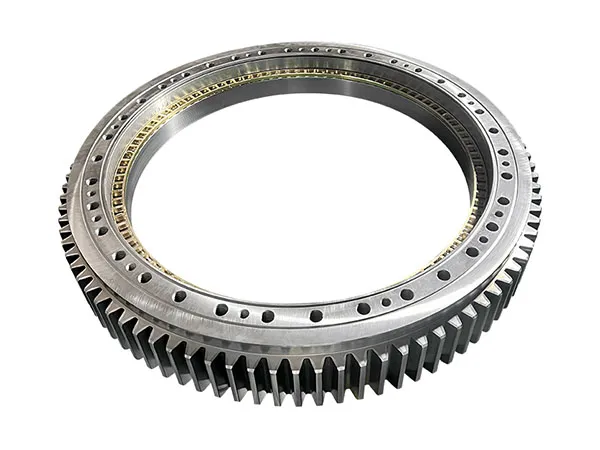Choosing the right material for a slewing bearing is crucial for its performance, longevity, and overall cost-effectiveness. The “best” material depends heavily on the specific application, load requirements, environmental conditions, and budget.
Slewing Bearing Materials

Races (Rings): Typically made from hardened steel.
Carbon Steel (e.g., 1045, 1050): Most common and economical choice for light to medium-duty applications.
Alloy Steel (e.g., 4140, 4340, 50CrMo4, 42CrMo4): Offers higher strength, toughness, wear resistance, and hardenability. Used for medium to heavy-duty applications.
Stainless Steel (e.g., 304, 316, 440C): Used in corrosive environments or where hygiene is critical (food processing, marine applications, medical equipment). 440C is often used for races that require hardening.
Rolling Elements (Balls or Rollers): Usually made from high-carbon chromium bearing steel.
High-Carbon Chromium Bearing Steel (e.g., 52100, 100Cr6): The industry standard for rolling elements due to its exceptional hardness, wear resistance, and ability to withstand high contact stresses.
Ceramic (e.g., Silicon Nitride – Si3N4): Used in specialized applications where extremely high speeds, high temperatures, or non-magnetic properties are required.
Stainless Steel (e.g., 440C): Used in corrosive environments for rolling elements.
Cage/Separator: Keeps rolling elements separated and evenly spaced. Materials vary depending on the application.
Steel (e.g., Low-Carbon Steel, Stainless Steel): Common for general-purpose applications.
Brass/Bronze: Offers good wear resistance and damping properties.
Polyamide/Nylon (Plastic): Lightweight and quiet, suitable for lower-speed applications.
Factors to Consider When Choosing Materials

Load Requirements:
Static Load: The maximum load the bearing must withstand when stationary. Higher loads require stronger materials like alloy steels.
Dynamic Load: The load the bearing must withstand while rotating. This affects fatigue life, so materials with higher fatigue strength (e.g., alloy steels, high-carbon chromium steel for rolling elements) are needed.
Impact Load: Sudden, high-energy loads. Require materials with high toughness and impact resistance (e.g., certain alloy steels).
…
For more detailed information on slewing bearing material comparison, please click here: https://www.mcslewingbearings.com/a/news/slewing-bearing-material-comparison.html


